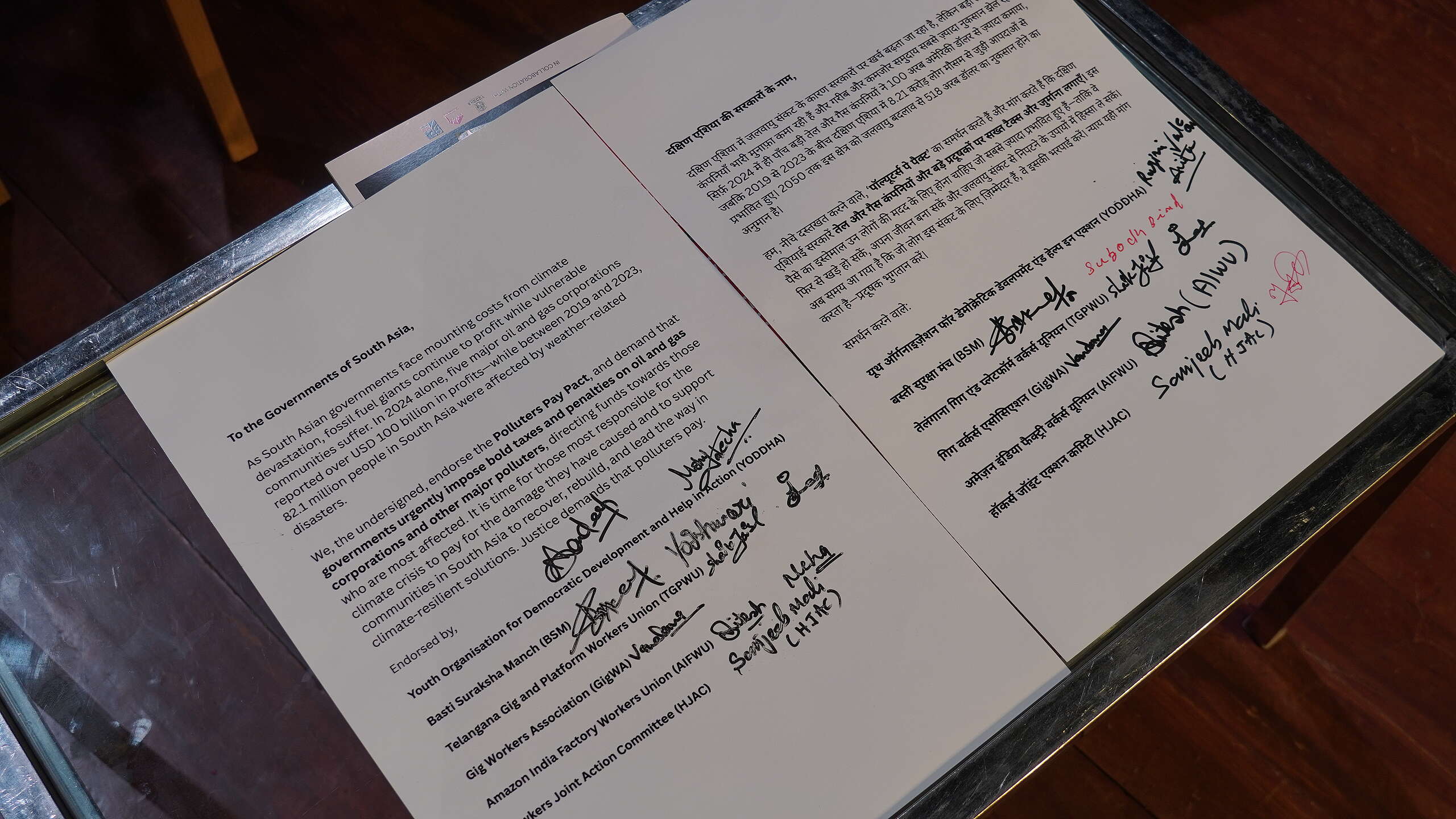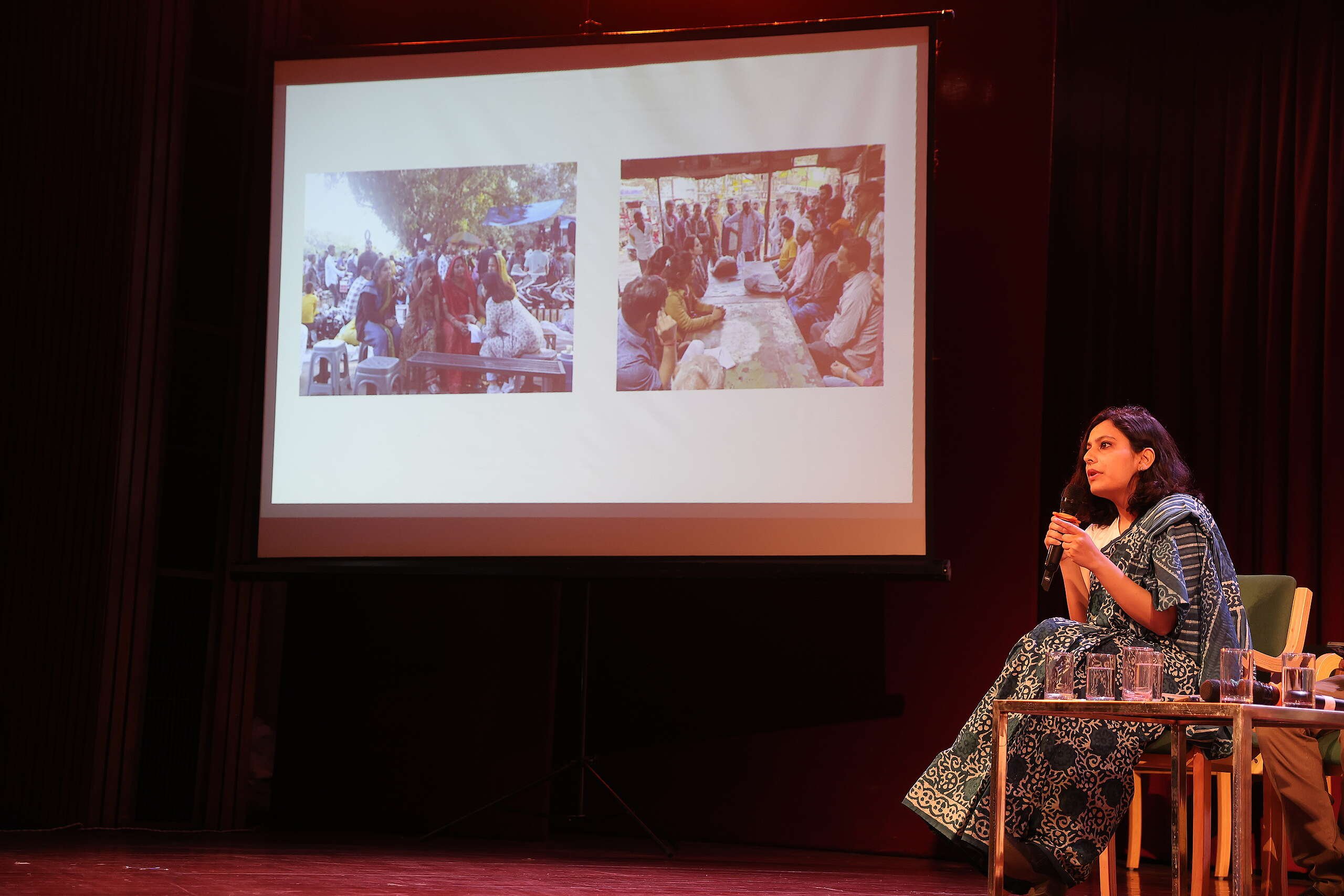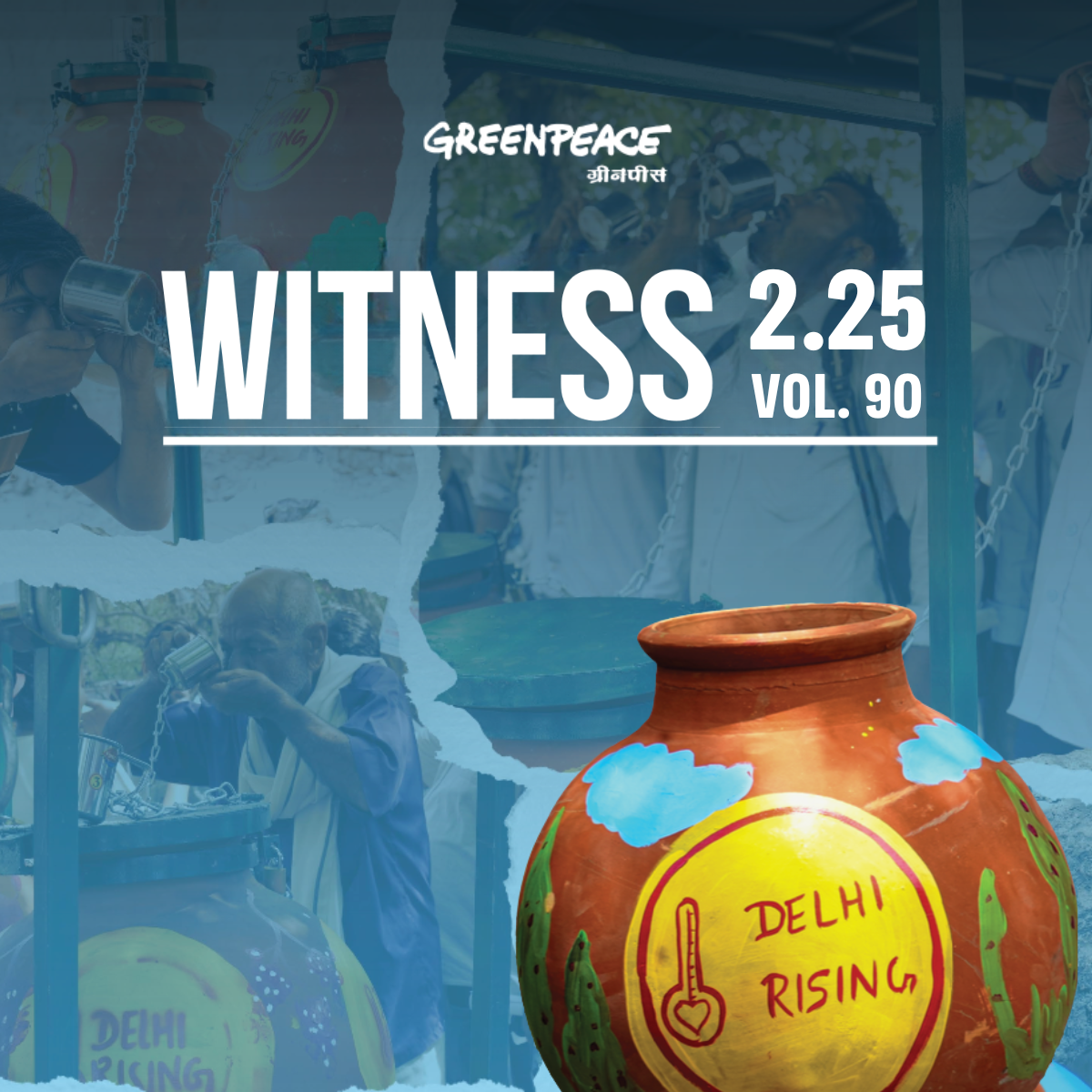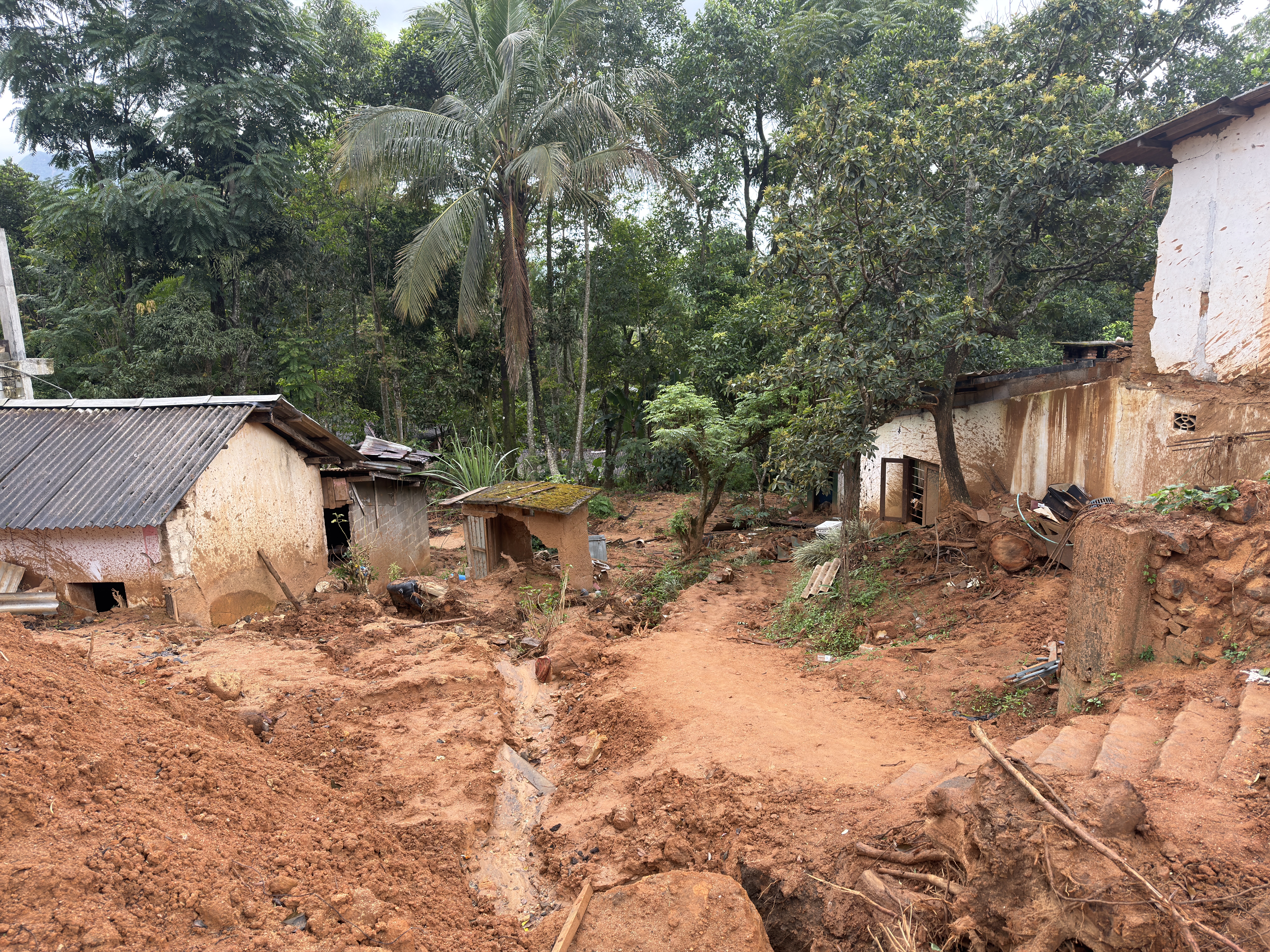This May Day wasn’t just about reflecting on the struggles of workers—it was about shaping the future of labour and climate justice, together.
On May 1st, 2025, something incredible happened. It wasn’t just another May Day rally. No, this was history in the making. A moment where workers—gig and platform workers, rickshaw pullers, domestic workers, construction labourers, and waste pickers—came together with one unified voice, to demand accountability from the biggest polluters in the world. This wasn’t a one-time event, it was something bigger. Something that will resonate for a very long time.
The Workers Collective for Climate Justice (WCCJ) – South Asia was officially launched. And on a busy labour day: 200+ workers didn’t just come to show up—they came to unite. They came to be heard. For the first time, unions that rarely cross paths—unions of workers from all walks of life—stood together, sharing their struggles, victories, and calling for a fairer world. This was about mobilization to demand accountability.
What followed was a pact that made history.
A Pact for Justice: Make Polluters Pay
On the 139th anniversary of the original May Day, 6 unions including YODHA, Basti Suraksha Manch, Telangana Gig and Platform Workers Union, Gig Workers Association, Amazon India Workers Union and Hawkers Joint Action Committee—representing over 2.2 lakh workers—signed the “Make Polluters Pay Pact.” For the first time in history, workers—those who are the first to feel the heat of the climate crisis—demanded accountability from the oil giants. They’re not just talking about their own survival; they’re talking about justice for all workers who are impacted by climate change.

And the movement didn’t stop there. Eight more unions from across South Asia are joining in, pledging their voices in solidarity: Joint Trade Union Alliance (Sri Lanka), Youth 4 NDC (Bangladesh), Bangladesh Environment and Development Society, Janathakshan (Sri Lanka), Power Shift (Nepal), Nepalese Youth 4 Climate Action, and Bangladesh Centre for Workers Solidarity.
But that wasn’t all.
Sarees for Solidarity: Weaving Messages Across Borders
Have you ever thought about a saree as a medium for political expression? The saree, traditionally a symbol of South Asian sisterhood, became the canvas for something deeper. Workers from India, Sri Lanka, Nepal, and Bangladesh wrote messages of resilience, solidarity, and hope on sarees. These sarees aren’t just fabric—they are witnesses. They are stories of workers standing together, creating a statement of resistance.
The plan? To take these sarees to COP later this year, turning them into an art installation that will tell the world: Labour Justice Is Climate Justice!
Bringing Lived Experiences to Light: The Labouring Through the Climate Crisis Report
No jargon. No abstract discussions. Just real stories.
This was the heart of our report, Labouring Through the Climate Crisis. We didn’t just present numbers and stats—we told stories. Stories of underserved workers who are facing extreme heat, rising floods, and unpredictable weather. These voices in the room were not just subjects of discussion—but as experts of lived experiences of the vast majority.
At the roundtable discussion, panelists from Amazon workers, domestic workers, gig workers, and more spoke candidly about their daily struggles. One story that stood out was from Neha, a leader of the Amazon India Workers Union, who shared their fight for proper working conditions in warehouses with no cooling and no access to water. No water, they were told. Imagine that. But Neha and her union didn’t back down. They fought for their rights, they raised their voices, and they won better conditions.
This wasn’t just a victory for Amazon workers—it was a victory for workers everywhere who stand up and say, we deserve better.
Media Buzz: From Local to Global
This isn’t just a local issue. This is global. With coverage from The Times of India, Indian Express, Behan Box, and Down to Earth, the voices of the workers reached far beyond the rally. And internationally? Al Jazeera published our Op-Ed, while BBC interviewed our ally Sandeep from Yoddha. This is the power of unity.
IIt wasn’t just about the media presence—it was about catalysing a global conversation that puts workers’ rights at the center of the climate discussion.
A Moment to Celebrate
And then, there was the collective energy. The sense of community. Workers from different sectors, regions, and backgrounds coming together, sharing stories, laughing, supporting each other. The day was full of humanity—the kind of humanity that makes you believe, even in the toughest times, that change is possible.

To every worker, every union, every person who believes that workers are the backbone of climate justice.
This is just the beginning. Together, we rise.
Zindabad!



